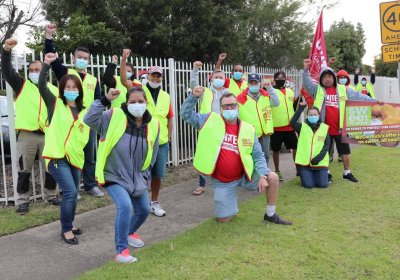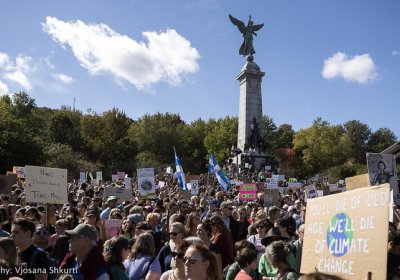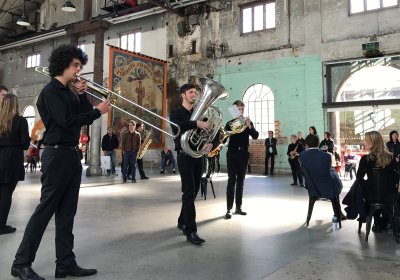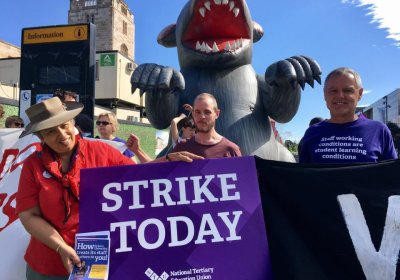Alex Salmon reviews Working Class History, a great tool for understanding how every gain workers and ordinary people have made has come through struggle.
Strikes and industrial action
Workers at McCormick Foods Australia have walked out after their demands for improved working conditions and a pay rise were ignored. Sue Bolton reports.
Big Mac sauce and Aeroplane Jelly are off the menu for now while the workers who make them are denied a pay rise. Kerry Smith reports.
Masses of Indonesian workers took strike action across the country on October 6–7 against a new employment law, writes Susan Price.
With a crowd of 500,000 people, Montreal’s march for the climate was the largest in the world during the September 20-27 week of climate action. Despite provincial labour laws preventing unions from striking over political issues, 7500 workers formally voted to go on strike for a day, reports Alain Savard.
Filmmakers Amanda King and Fabio Cavadini have collaborated on a number of projects about significant, but lesser known, subjects in Australian history. Together, they have now brought one of the great hidden events of labour history in this country to the big screen.
The Great Strike 1917 retells the largely forgotten story of one of Australia's biggest industrial struggles and its impact on society.
Fifty years ago, an industrial penal powers dispute provoked the biggest strike wave in Australia's post-war history. Jim McIlroy looks at the 1969 'Free Clarrie O'Shea' campaign and its lessons for unions today.
Tiziri Kandi is an officer with the hotel workers’ branch of the General Confederation of Labour (CGT) – a major confederation of French trade unions. Following the 111-day Clichy Holiday Inn strike in Paris, she spoke with Joe Hayns about the strike, outsourcing, and the limitations faced by railway workers in their struggle against President Emmanuel Macron’s attack on the state-owned railway operator, SNCF.
Outraged by government failures to honour a peace deal with the Revolutionary Armed Forces of Colombia (FARC), rural communities across Colombia have initiated a “national strike” demanding widespread solutions to poverty, violence and drug trafficking.
The strike is the most far-reaching since 2013, when farmers took to the streets decrying abject poverty and negative economic effects of a free trade agreement with the United State
Staff at James Cook University in northern Queensland — at least half of whom are employed casually, and often infrequently — have rejected a management proposal for an enterprise agreement at the university. Of the 54% of staff who voted, 58% voted against the proposal in the non-union ballot held over September 13–15.
National Tertiary Education Union members mobilised in the brief one-week consultation and balloting period to secure a vote nearly three times their own numbers.
The federal government’s vulnerable workers legislation, which it says is to crack down on franchisee underpayments, would give the Fair Work Ombudsman (FWO) coercive powers to investigate unions and compulsorily obtain information from workers over suspected unlawful industrial action.
Employment Minister Senator Michaelia Cash said on August 16 the new law would mean the FWO could obtain evidence of "discrimination, coercion, conduct relating to false records, unprotected industrial action, accessorial liability, unfair dismissal [and] bullying claims".
More than 70 workers at Visy’s Dandenong plant voted on August 7 to maintain a peaceful picket and not return to work after an Australian Manufacturing Workers Union (AMWU) delegate was sacked on August 4 for organising “illegal industrial action”.
The workers, all members of the AMWU, had become increasingly angered by a series of provocative actions taken by Visy management in the weeks before the delegate was sacked.
- Previous page
- Page 3
- Next page











